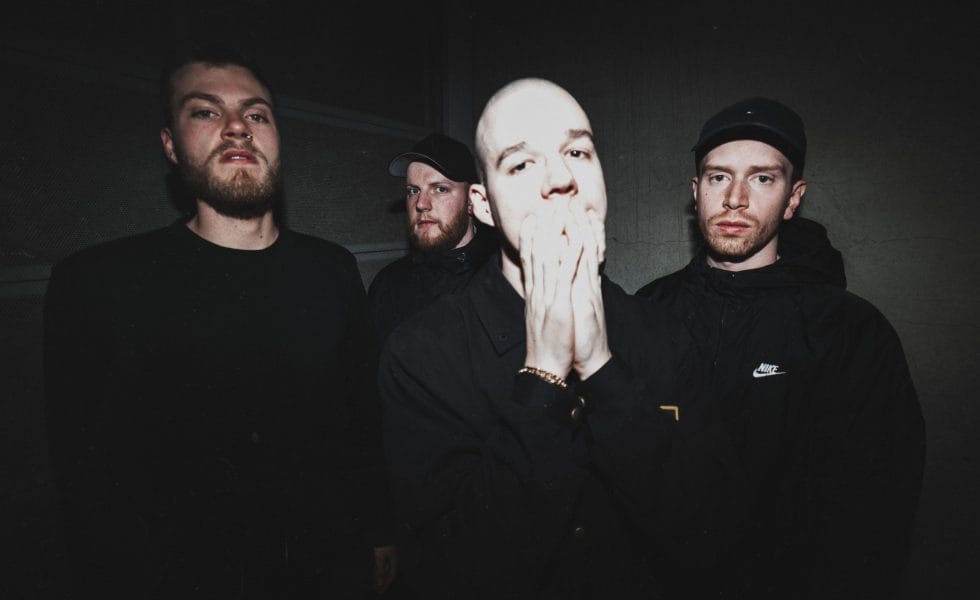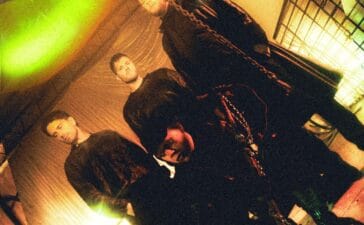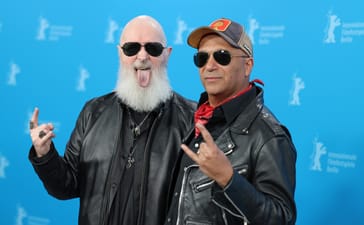They say that an artist’s job is never complete. Fortunately for all, there are things called deadlines and release dates which tend to force the creative to surface for air.
But every so often, an artist is gifted the opportunity to return to an erstwhile project, to attempt again to finish the job under the banner of a “redux.” In theory, every artist should want to revisit their former albums, either to polish off pieces of the puzzle that the deadlines denied them, or to breathe new life into their prior creations.
Upon returning to their 2019 album Hyperdaze, with the intention of zhushing the album accompanied by a small crowd of their close peers, Void Of Vision certainly did find joy and beauty within the fold. On top of that, they would also discover that the redux process entails much, much more.
“I thought it was going to be a very clear vision, but it ended up being a bit of a head fuck. It was awesome to do the album again from a different point of view,” Void Of Vision frontman Jack Bergin recalls to Blunt Magazine of the project.
One source of this head fuckery was the concept of Jack getting outside of himself as a creative. After all, if he was going to make Hyperdaze his way, he’d make it the same album – perhaps with wings and speed stripes to be more aerodynamic? After all, in 2019, he was confident in what he had created.
Rather than merely retelling the stories within Hyperdaze through their own lens a few years after the fact, Void Of Vision added considerable substance to the release by tagging in a slew of artists to sprinkle their flavour over the rest of the collection: Jacob Charlton from Thornhill, Bobak Rafiee from Justice For The Damned, Lucas Woodland from Holding Absence, Jamie Hails from Polaris, Jon Deiley from Northlane, Ken Koie from Crossfaith, Garrett Russell from Silent Plane, Kadeem France from Loathe, Ecca Vandal and Up Late.
The logistics alone were staggering, given that these artists weren’t brought in for the mere standard fifteen-second guest vocal spot. Instead, they were handed the reins of the original song.
“It just changed my perspective on the tracks because a lot of them got really creative with it; they were changing melodies, changing phrasing, even changing literal parts of the song. And it just hit me. It was like a breath of fresh air…”
To make things even more complicated, there was no scaffold or blueprint of what Void wanted from each artist. They were free to let the wild horses run, and consequentially, they bolted. Lead single ‘Year Of The Rat’ featuring Jacob Charlton was but one example, with Jack noting that “Thornhill worked really well in an ambient, ‘carry you away’ vocal style,” creating a subtle but unmissable new atmosphere in the track.
In a similar vein, Hails was brought in for ‘Slave To The Name’ because “I always pictured Jamie singing before screaming on that song. He’s really toned down. It’s really calming. And then he just comes into it.”
Contract that with, say, ‘Hole In Me’ featuring Koie: “I just went for the most chaotic song on the record, because Crossfaith are a very chaotic band.” And the explosive entrance of Ecca Vandal on ‘Decay’? “Ecca’s very in your face with what she does,” and was intended to very much put her neck on your throat with her reprisal.
“It was so weird, man,” Jack recalls of the process of allowing others to meddle with his creations. “It makes you think, as a writer, I never even thought of doing something like that two years ago when I wrote this. I’ve always learned off other people, but it’s just awesome having my peers and friends putting their input into it, our personal little diary.”
“It created a lot of inspiration for ourselves too, because we’re in the midst of also writing brand new music at the moment.”
Jack’s advice for other artists considering digging back into some bounces from years past is simple: Fucking do it. “The refresher is handy in general,” he adds. But there’s another, more timely reason to use this time to go backwards, rather than forwards.
On account of the pandemic, Jack concludes that he’s “already forgotten bands, albums that came out a year ago that I love, and they’ll jump up on Spotify memories or something, and I’ll be like, “Oh my God, I forgot all about this.” So for people who don’t have that privilege of bumping, then I guess putting out the record again, but re-imagined or re-mixed or reduxed…It’s a pretty cool idea.”
It’s safe to assume that he knows what he’s talking about.










